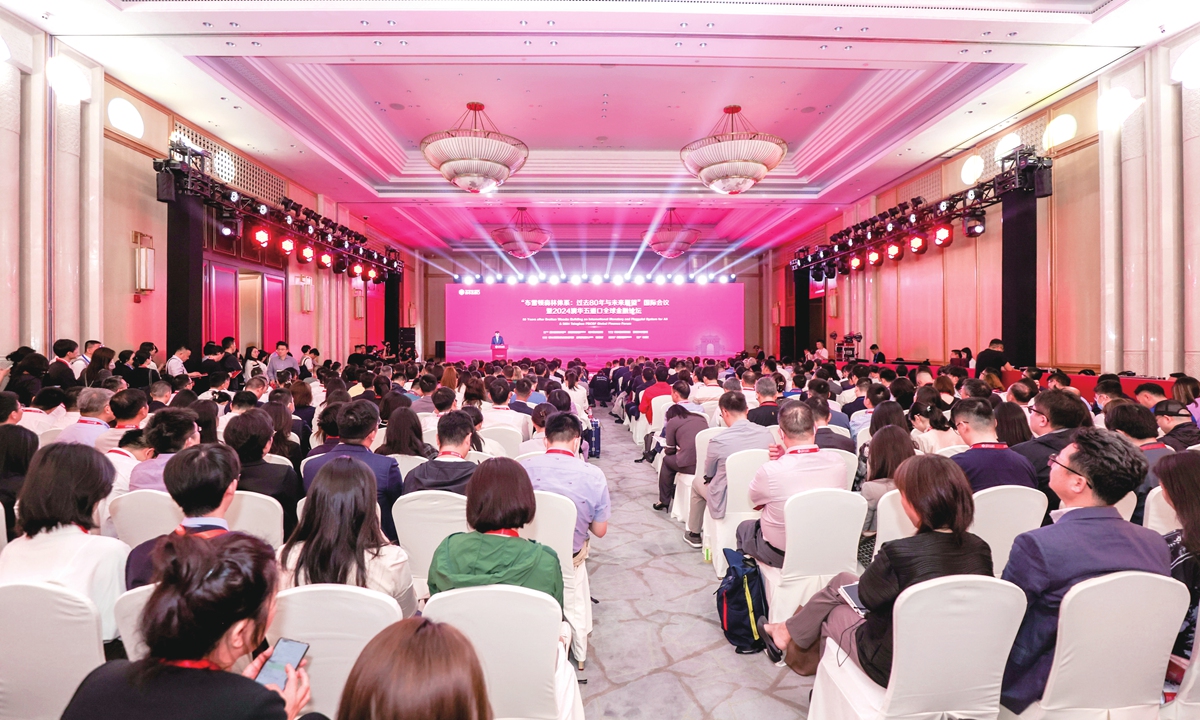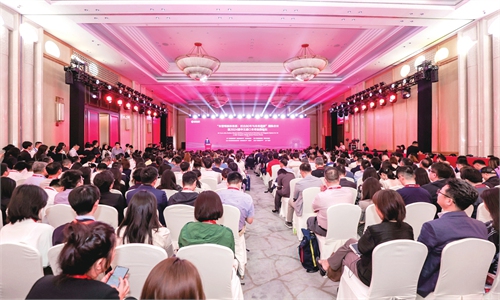China to resolutely boost trade liberalization, expand high-level opening-up: government official

The 2024 Tsinghua PBCSF Global Financial Forum kicks off at Hangzhou, East China's Zhejiang Province on May 27, 2024. Photo: Courtesy of event organizer
China's Vice Minister of Finance Liao Min said on Monday that China will resolutely push for trade liberalization and investment facilitation, and adhere to high-level opening up to the outside world. He made the remarks at an international conference held in Hangzhou, capital of East China's Zhejiang Province.
Themed with "80 Years after Bretton Woods: Building an International Monetary and Financial System for all," the two-day 2024 Tsinghua PBCSF Global Finance Forum gathers more than 70 Chinese and foreign officials and scholars to discuss a variety of related topics, according to Xinhua News Agency.
Liao highlighted China's determination to promote high-level openness and active participation in international governance, aimed at driving global economic development and contributing to world prosperity.
In advancing China's high-level opening up, Liao said more efforts are being made toward aligning with international high-standard economic and trade rules, building a transparent, stable, and sustainable institutional environment, while upgrading its own economic structure.
Currently, China is taking a range of measures to boost various segments of the economy, making sure supply and demand are balanced, boosting domestic investment and consumption, while achieving high-quality development for itself and benefiting the global economy, the official said.
With its rapid development and continuous growth, China, as a major contributor to global development and an advocator of international order, remains dedicated to reform and governance of international financial institutions such as the World Bank and International Monetary Fund (IMF), offering strong support to ensure their healthy and robust growth. In 2020, China became the third biggest shareholder in the World Bank, ahead of Germany, after the United States and Japan.
Meanwhile, China is increasingly participating in international affairs in its own way. International institutions such as Asian Infrastructure Investment Bank initiated by China in 2015, as well as the New Development Bank of BRICS Countries set up in 2015 are vivid examples demonstrating the country's commitment to multilateralism and openness to multilateral affairs, Liao noted.
They are operating in accordance with high international standards and engaging in various forms of financing cooperation with the World Bank, serving as a beneficial supplement to the existing multilateral international order, Liao said.
And, China is actively participating in global financial governance and policy coordination, engaging in multilateral cooperation, developing partnerships with countries across Global South. Liao expressed hope that countries will work together to engage in multilateral cooperation beyond the Bretton Woods System, adhere to the concept of consultation, joint construction, and shared benefits.
"Looking ahead, we should work together to build a global governance system with fair rights, opportunities, and rules, which boosts global economic growth and prosperity, and make positive contributions to global poverty reduction and development," Liao said.
Opposing protectionism and "decoupling" attempts, Chinese authorities have vowed to safeguard the hard-won free trade and multilateral trading system. On June 29, 2023, China's State Council issued a circular, which contains measures of six aspects to allow FTZs in Shanghai, Guangdong, Tianjin, Fujian and Beijing as well as the Hainan free trade port (FTP) as pilot forerunners to align their rules with high-standard international economic and trade rules to deepen institutional opening up, according to Xinhua News Agency.
China's vigorous drive to boost services trade liberalization will continuously inject impetus into cross-border trade, contributing to more sustainable globalization and a more open world economy, according to the report.
Global Times

